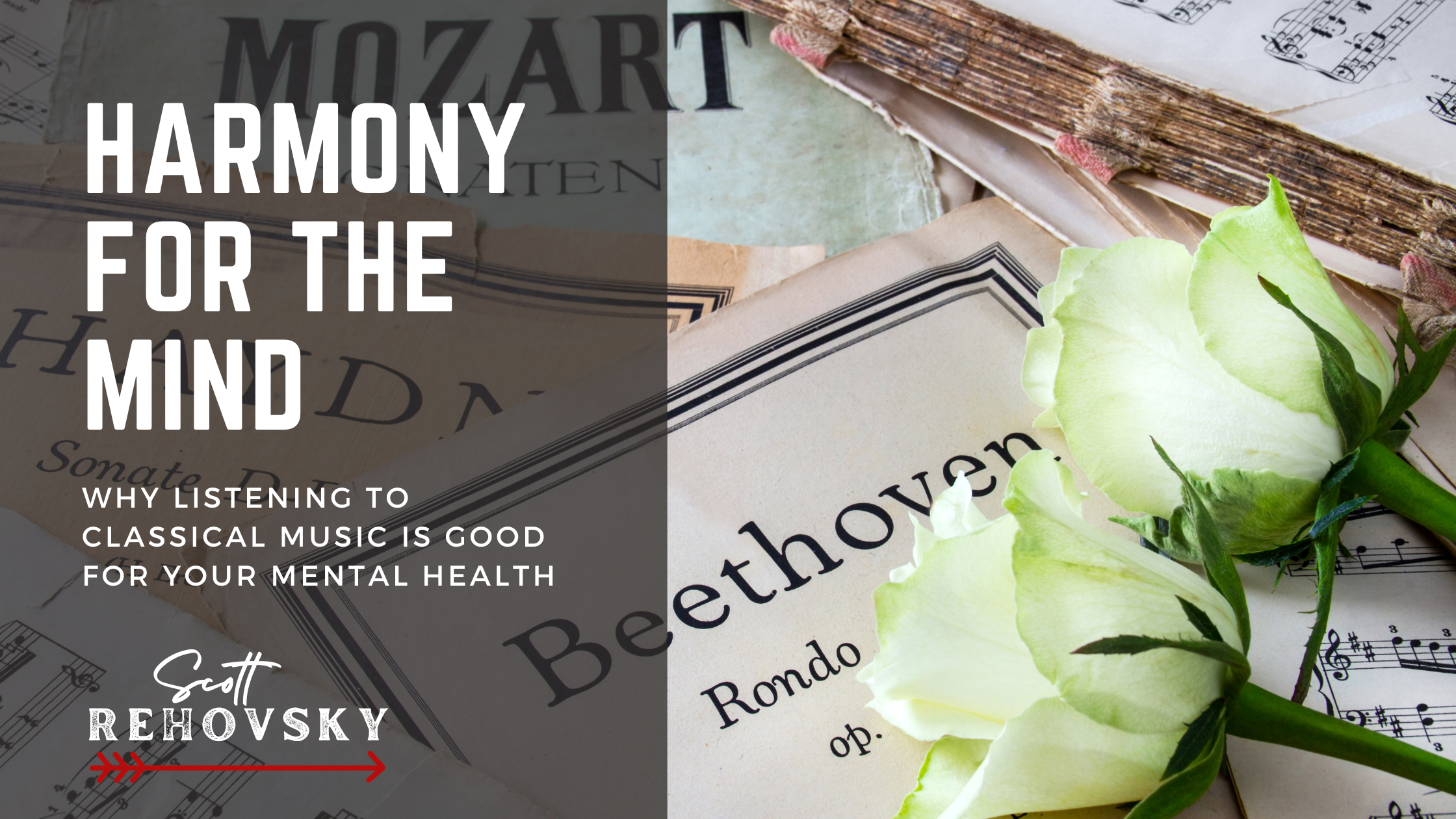In a fast-paced world filled with constant noise and distractions, finding moments of calm and tranquility is essential for maintaining good mental health. One timeless and readily available source of serenity is classical music. Its intricate melodies, soothing harmonies, and rich history make it a powerful tool for enhancing mental well-being. In this blog, we will explore why listening to classical music can have a positive impact on your mental health.
- Stress Reduction
One of the most well-documented benefits of classical music on mental health is its ability to reduce stress. When we listen to classical compositions, our brainwaves can sync with the music’s tempo, leading to a calming effect. The music’s gentle ebb and flow can slow our heart rate and lower stress hormones, making it an effective tool for managing anxiety and stress.
The works of composers like Johann Sebastian Bach, Wolfgang Amadeus Mozart, and Ludwig van Beethoven have been shown to have particularly stress-reducing qualities. So, next time you’re feeling overwhelmed, consider immersing yourself in the calming melodies of a Mozart concerto or a Bach fugue.
- Enhanced Concentration
Classical music is known for its power to enhance concentration and productivity. This phenomenon, often referred to as the “Mozart effect,” has been the subject of numerous studies. Listening to classical music can improve cognitive functions, making it easier to focus on tasks and solve problems.
If you find it challenging to concentrate while studying, working, or even during creative endeavors, try playing some classical music in the background. The gentle, unobtrusive nature of classical compositions can help you get into the flow and accomplish more with less mental strain.
- Emotional Expression and Catharsis
Classical music is a unique art form that has the ability to express a wide range of emotions. Composers pour their hearts and souls into their works, creating pieces that evoke feelings of joy, sadness, excitement, and contemplation. Listening to classical music can serve as a form of emotional catharsis, allowing you to connect with your own emotions and experiences.
Whether you’re feeling a surge of happiness and want to celebrate with a lively symphony or need to process feelings of sadness or grief through a melancholic sonata, classical music can be a powerful vehicle for emotional expression and healing.
- Improved Sleep Quality
Many people struggle with sleep-related issues, such as insomnia or restless nights. Listening to classical music before bedtime can be a natural remedy for sleep problems. The soft, soothing melodies can help calm the mind, reduce anxiety, and promote a sense of relaxation, which is essential for falling asleep.
Composers like Erik Satie or Claude Debussy, with their gentle and dreamy compositions, can be particularly helpful for establishing a peaceful bedtime routine. Try creating a playlist of your favorite calming classical pieces to wind down and prepare for a restful night’s sleep.
- Encouraging Mindfulness
Classical music invites listeners to be present in the moment. The intricate layers of orchestration and the nuanced dynamics require attentive listening, which can help cultivate mindfulness. Engaging with classical music in a mindful way can ground you in the here and now, reducing racing thoughts and worries about the past or future.
Conclusion
Listening to classical music is not just a pleasant pastime; it is a powerful tool for promoting mental well-being. Its stress-reducing qualities, ability to enhance concentration, and emotional expression, and soothing effects on sleep make it a valuable addition to your self-care routine. So, next time you’re in need of some mental rejuvenation, consider turning to the timeless melodies of classical music and let the soothing sounds of the past help you find peace in the present.

 Facebook
Facebook
 X
X
 Pinterest
Pinterest
 Copy Link
Copy Link


